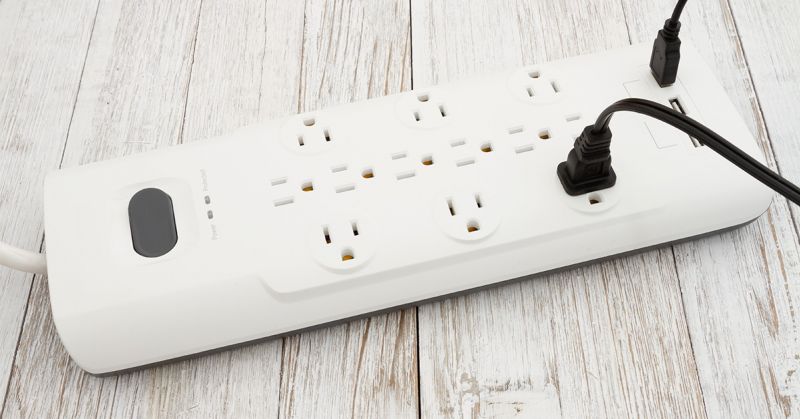
Should You Protect Your Electronics with a Surge Protector?
Because it works out-of-sight-out-of-mind in the background, most people take electricity for granted. That is, until a power outage disrupts the use of your home’s modern conveniences, or a wayward voltage spike fries the circuits of a computer, appliance, or other key electronics within the home. Absent a generator, you cannot do much about a power outage, but you can easily protect your home’s electronics with a surge protector.
While surge protection was invented in the late 1800s and has been widely available to the public since the 1980s, many people still fail to protect their electronics with surge protectors. In fact, the technicians at Meeks Electrical Services are often surprised by how many of their Tallahassee-area clients fail to protect vital electronics with these critical safety devices. If this describes you, read on to learn more about surge protection and why you should incorporate it in your home.
What Exactly is a Surge Protector?
Also known as surge “suppressors,” surge protectors protect electrical equipment from unexpected voltage spikes that exceed the electronics’ ability to handle safely. Most home electronics and appliances are designed to operate within a maximum 110- to 120-voltage range. Depending on the source of the surge, the transmission of excess voltage can reach thousands of volts. Thus, even mere nanoseconds of a power surge’s excess voltage can destroy electrical components found in just about every electrical device in the home.
While lightning-strike hits to transformers and powerlines are a common cause of the highest voltage surges, unpredictable surges can be caused by several other factors, including:
- Electromagnetic impacts of lightning storms, in general
- Power outages and power restoration
- Faulty electrical company equipment
- Electrical grid issues
- Downed or damaged power lines
- Electrical wiring issues within the home
- Malfunctioning electrical appliances
- Overloaded circuit breakers
How Does a Surge Protector Work?
Surge protectors work by diverting excess voltage away from attached devices and leading it to ground. Most standard plug-in surge protectors rely on a metal oxide varistor (MOV) component to capture excess voltage and safely divert it to a grounding wire. These protectors also include a built-in circuit breaker that shuts off the connected power if the MOV component cannot handle the amount of excess voltage.
A wide range of plug-in surge protectors on the market offers different levels of protection. In fact, some lower-end surge protectors are just fancy circuit breakers that only provide power interruption protection from large spikes. These models typically do not offer protection against smaller surges and other electrical disruptions. When choosing a surge protector, opt for ones from reputable brands that protect against a broad range of voltage and other electrical disturbances, and include a circuit breaker for added protection. In general, the higher the joule rating, the greater its ability to absorb and dissipate larger power surges.
Why You Need Surge Protection in Your Home
Anyone who loses a computer, cell phone, TV, appliance, or other electronic device because a power surge fried their components typically becomes a surge protection fanatic. Protecting your electronics from large power surges is just one obvious reason to ensure your devices are covered. Even periodic minor voltage spikes over time can degrade electrical components and shorten the lifespan of electronic devices and appliances. And while rare, some power surges can spark electrical fires.
To Learn More About Surge Protection, Consult with Meeks
To optimize surge protection in your Tallahassee-area home, consider asking your electrician to install a whole-home surge protector that re-routes all voltage surges to grounding wires before they reach your outlets. Depending on location and other factors, these whole-home surge protectors can be installed on your utility panel or electrical panel. For all of your residential or business electrical needs, we can be reached at (850) 575-5241.